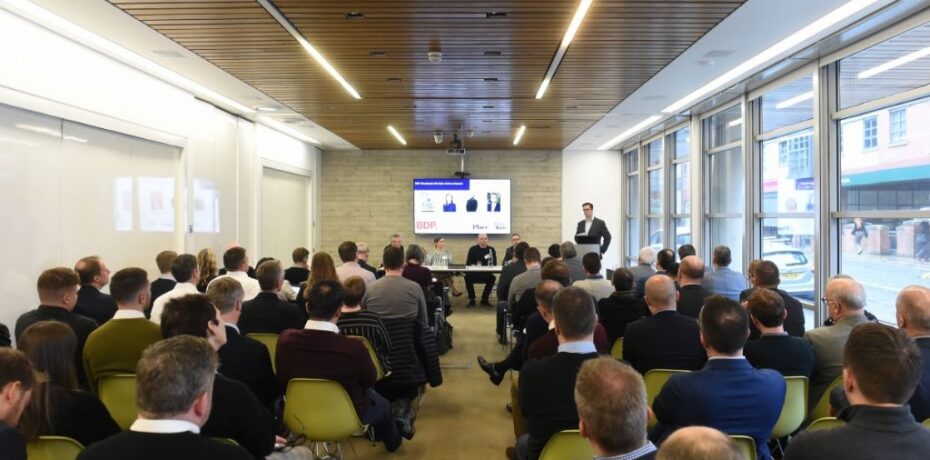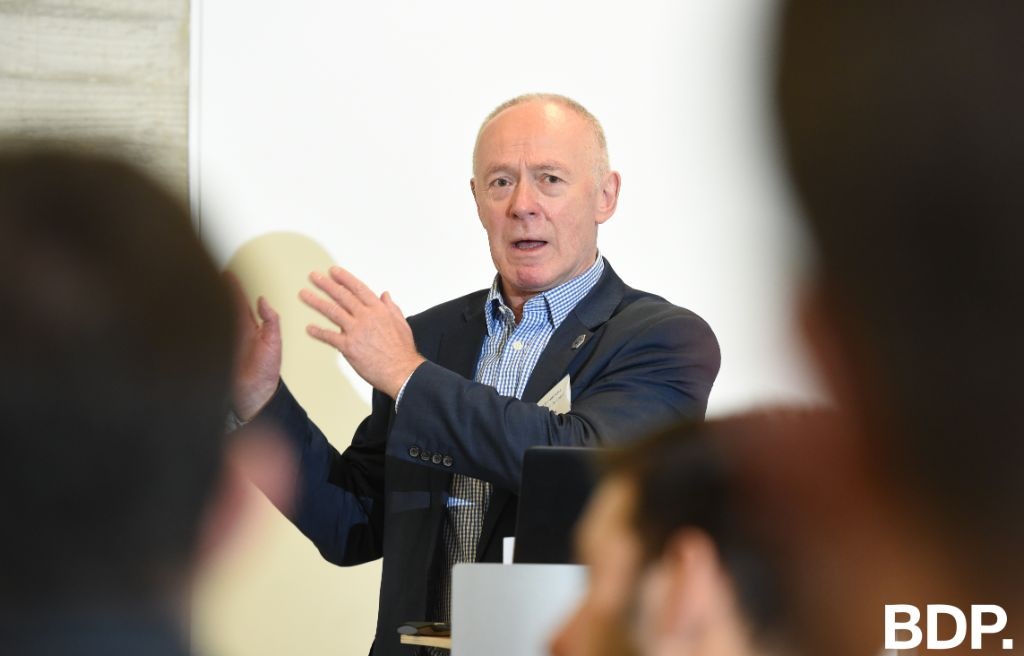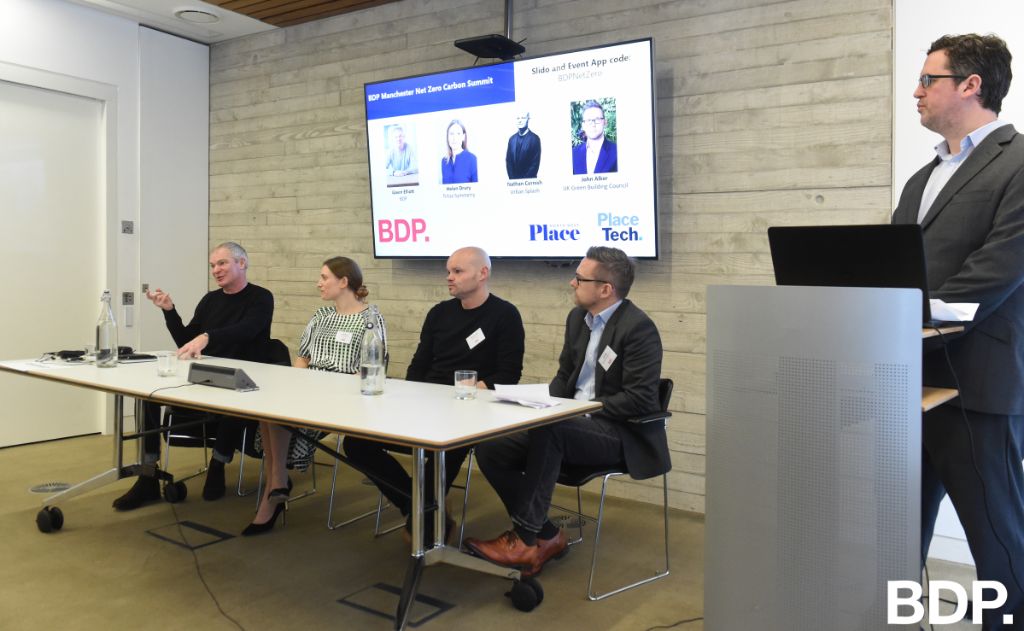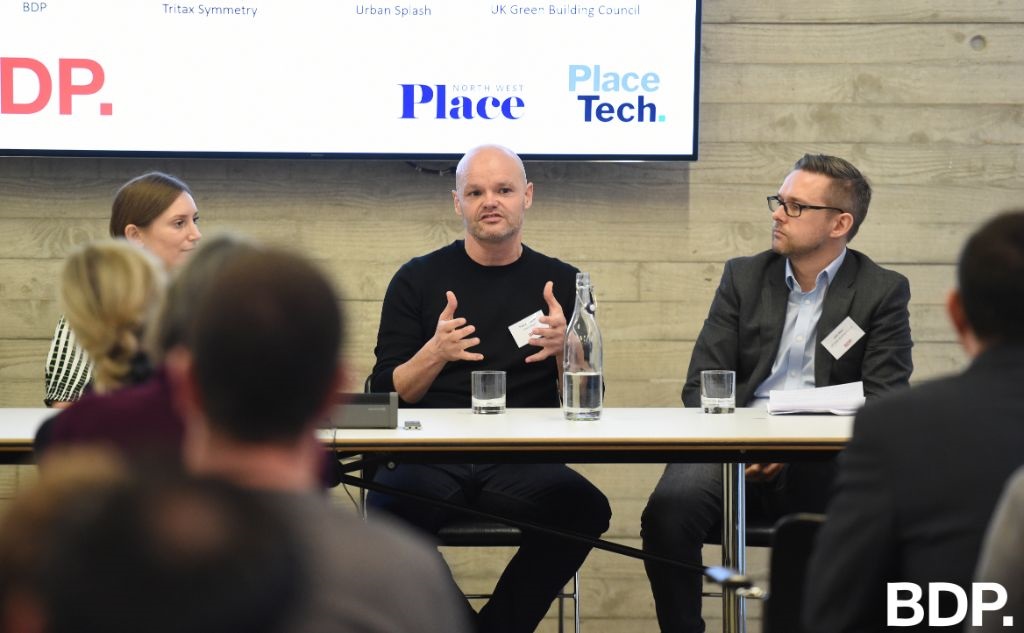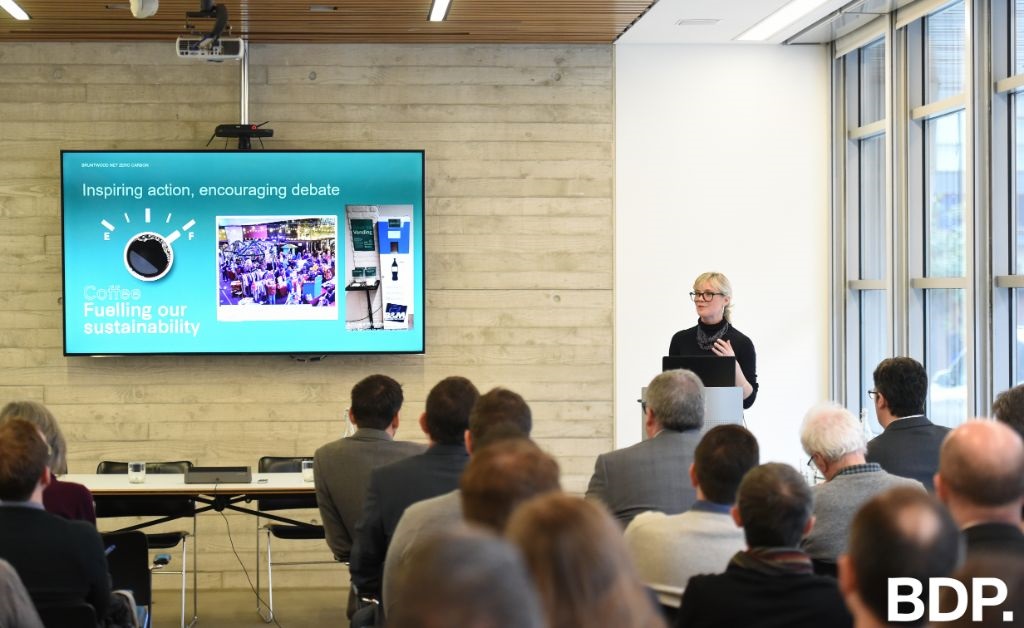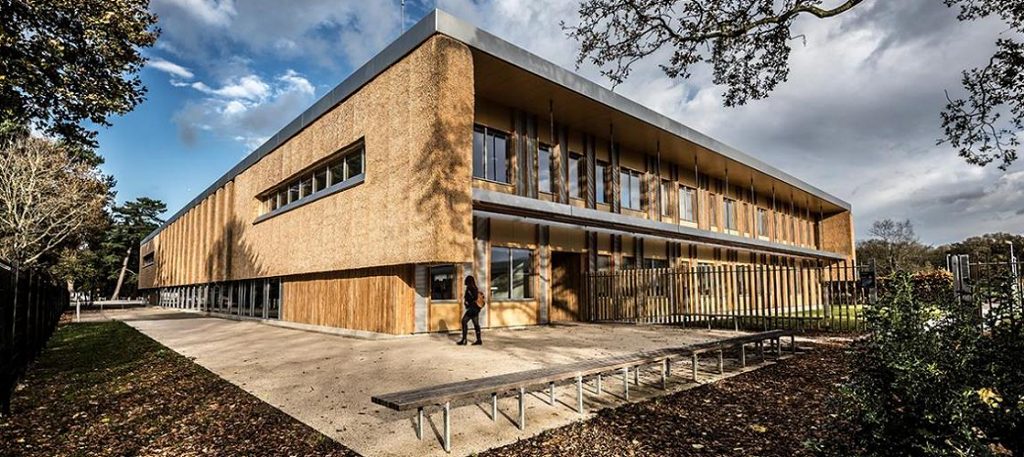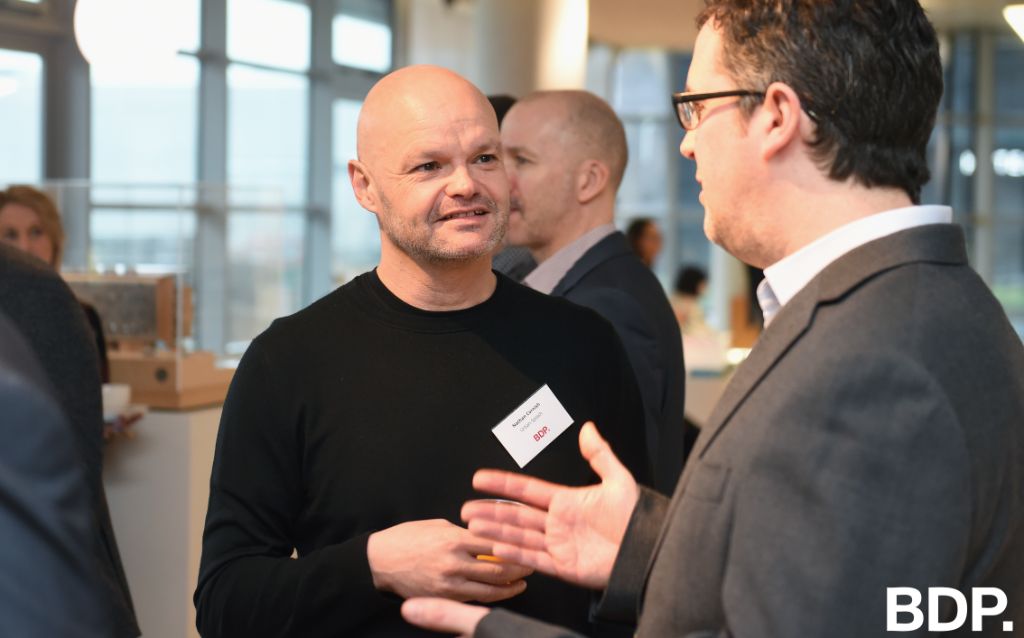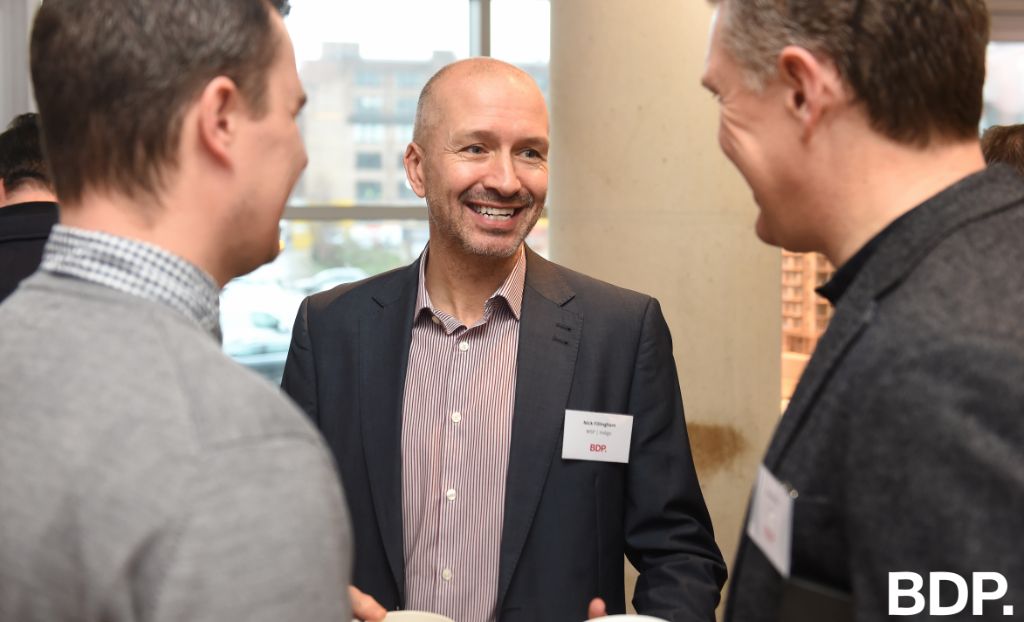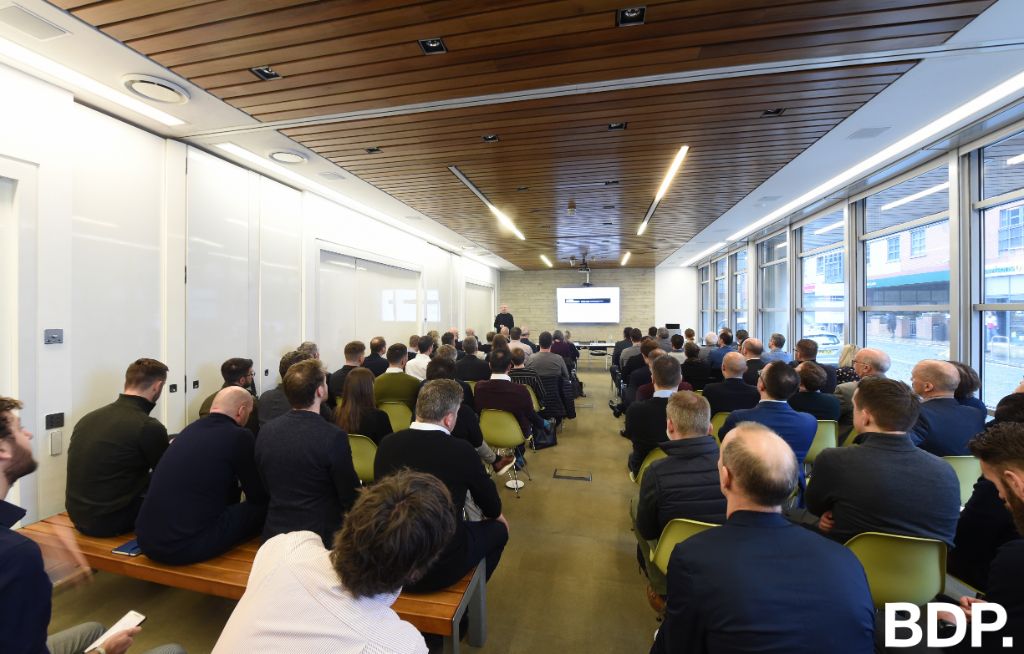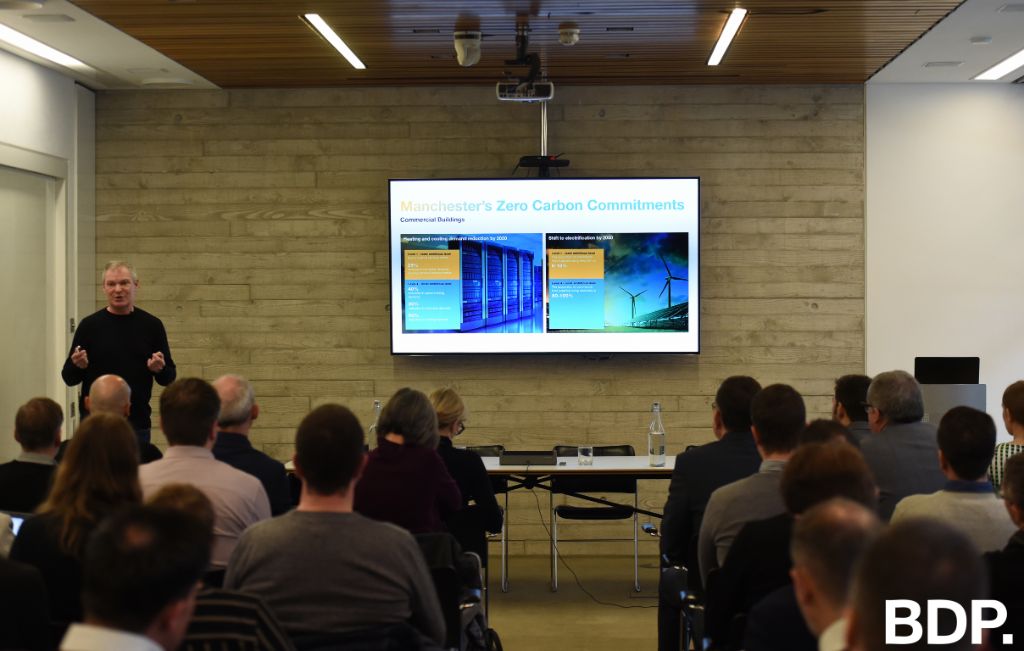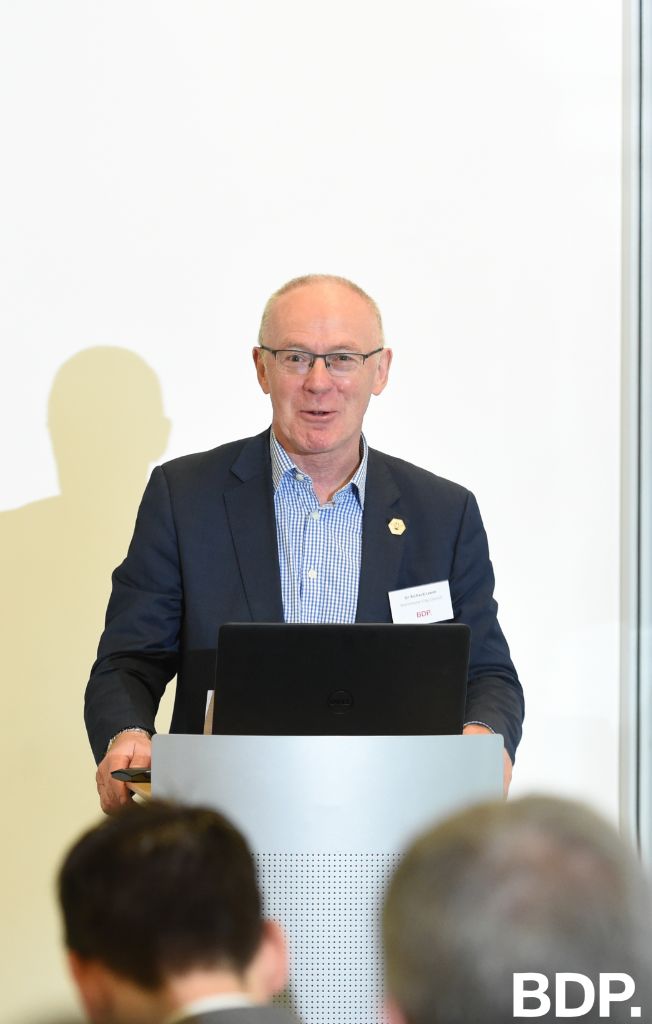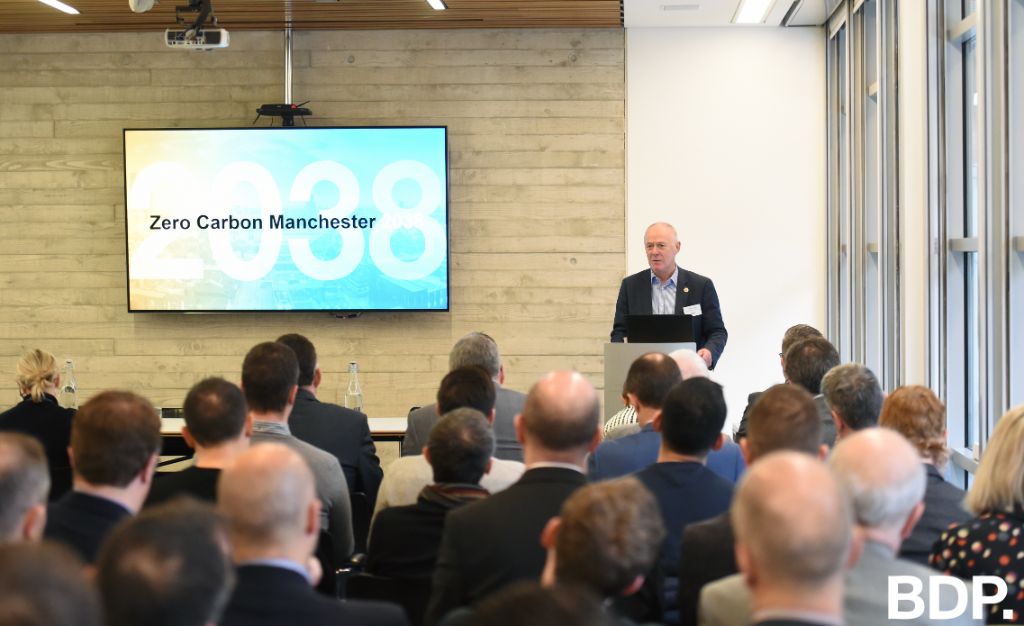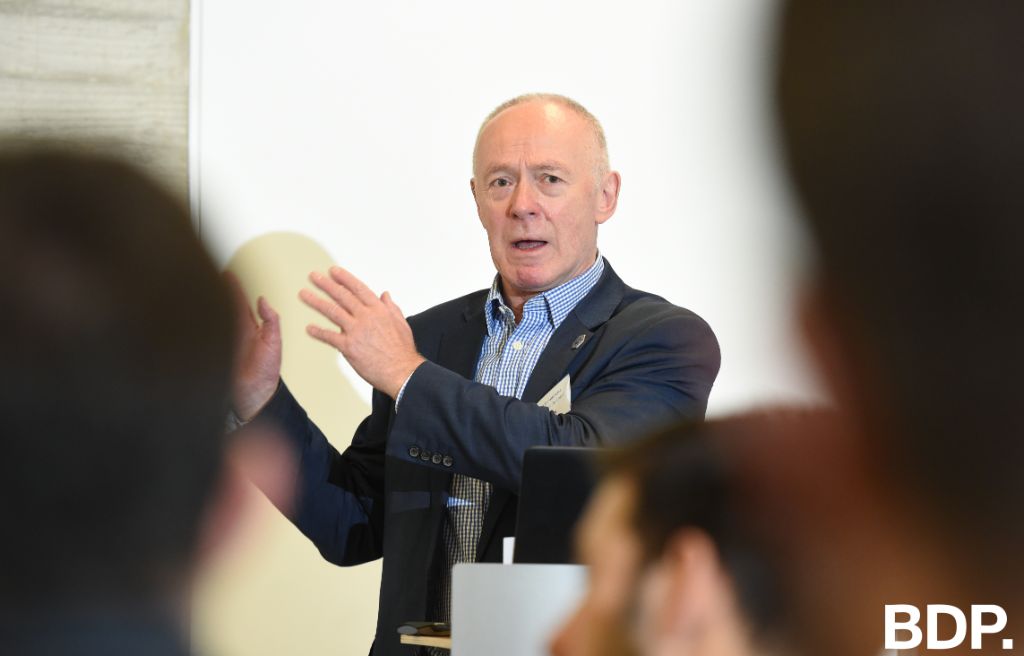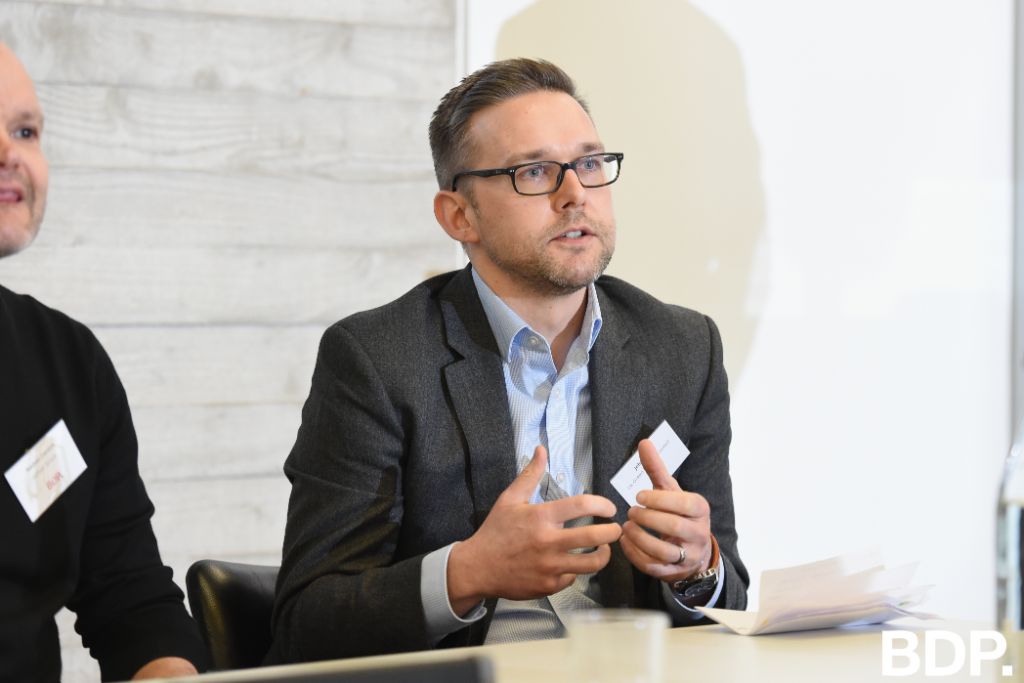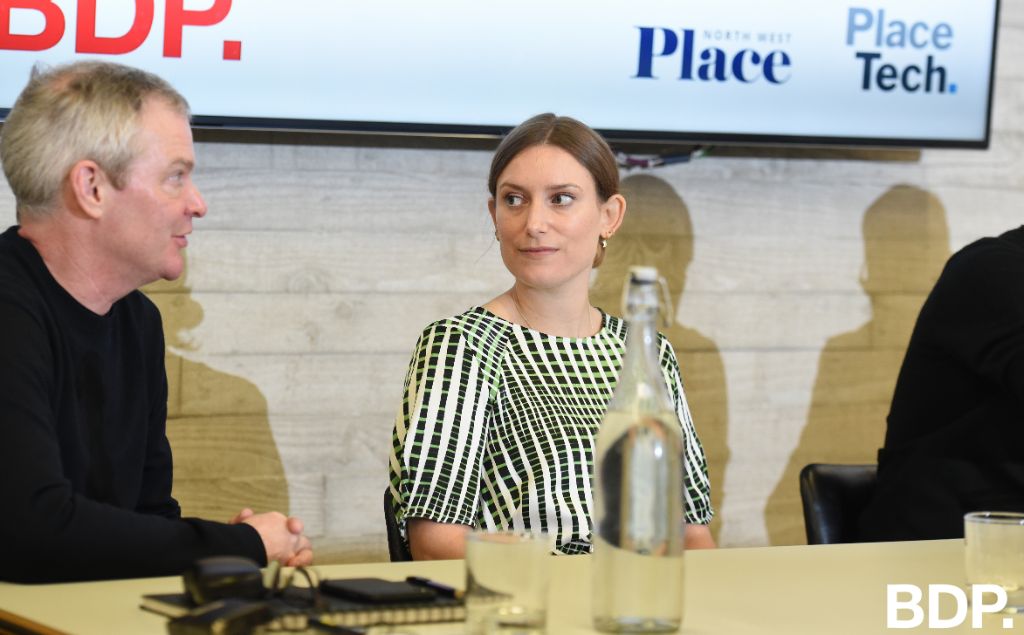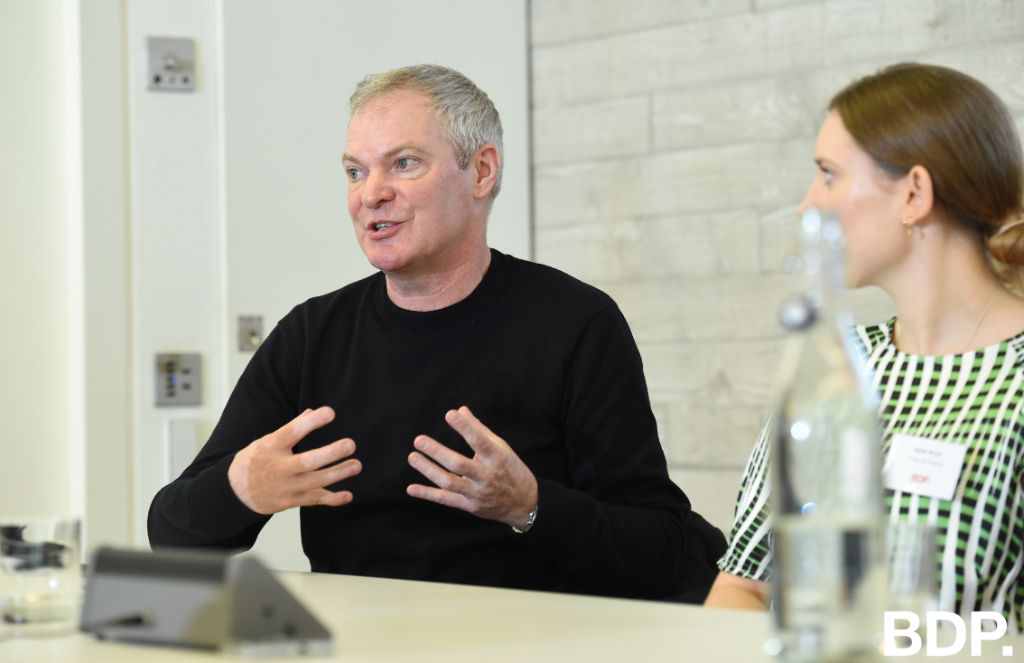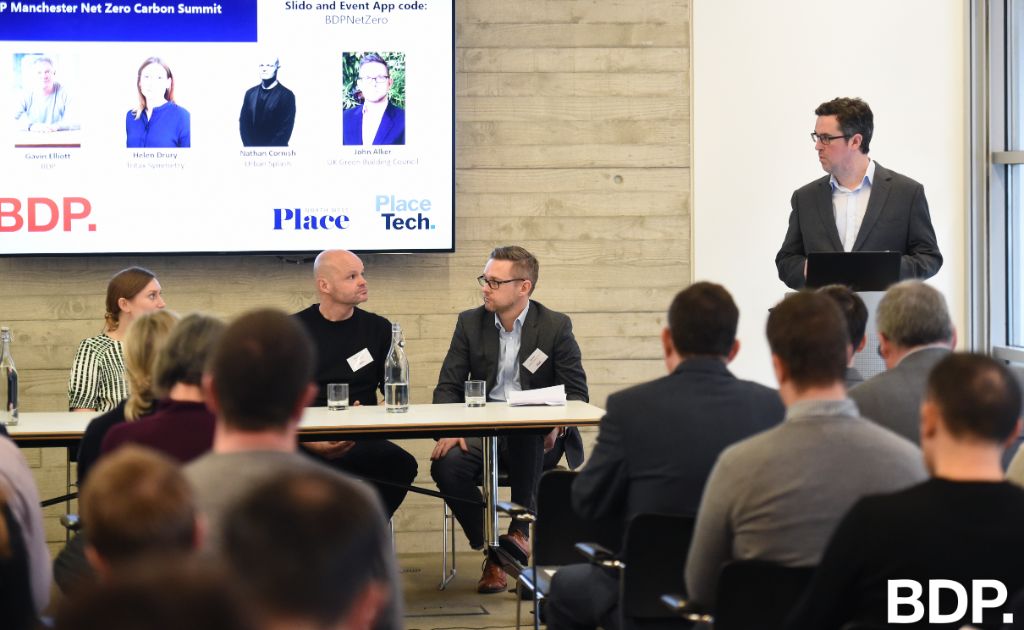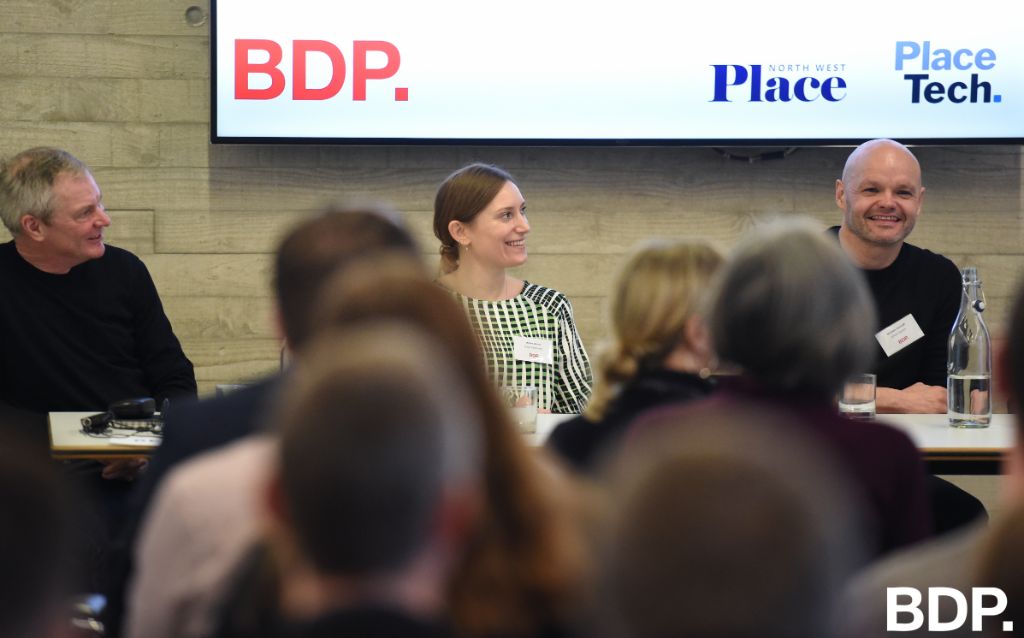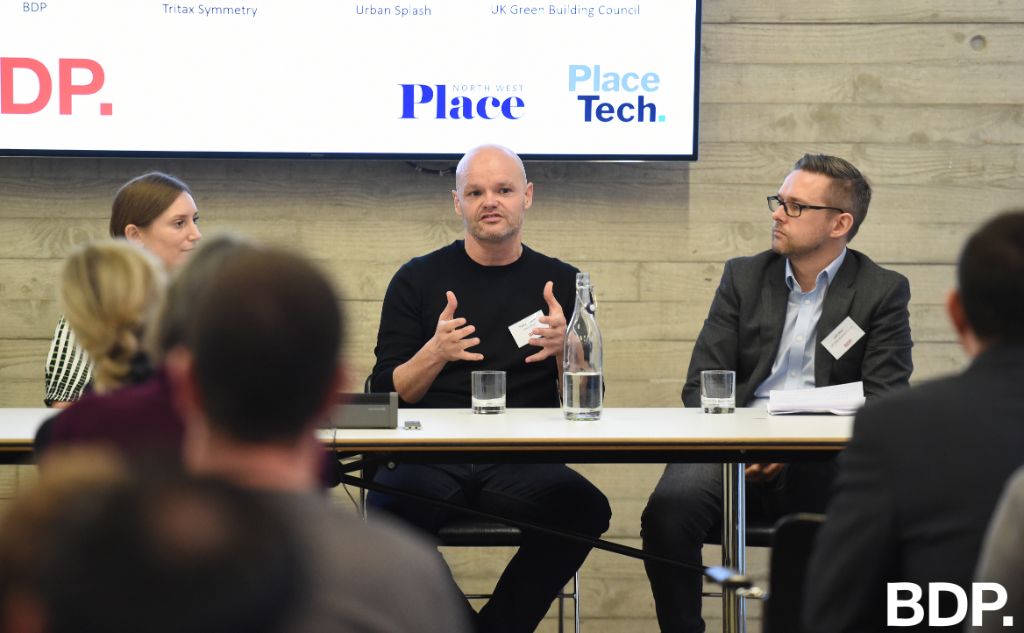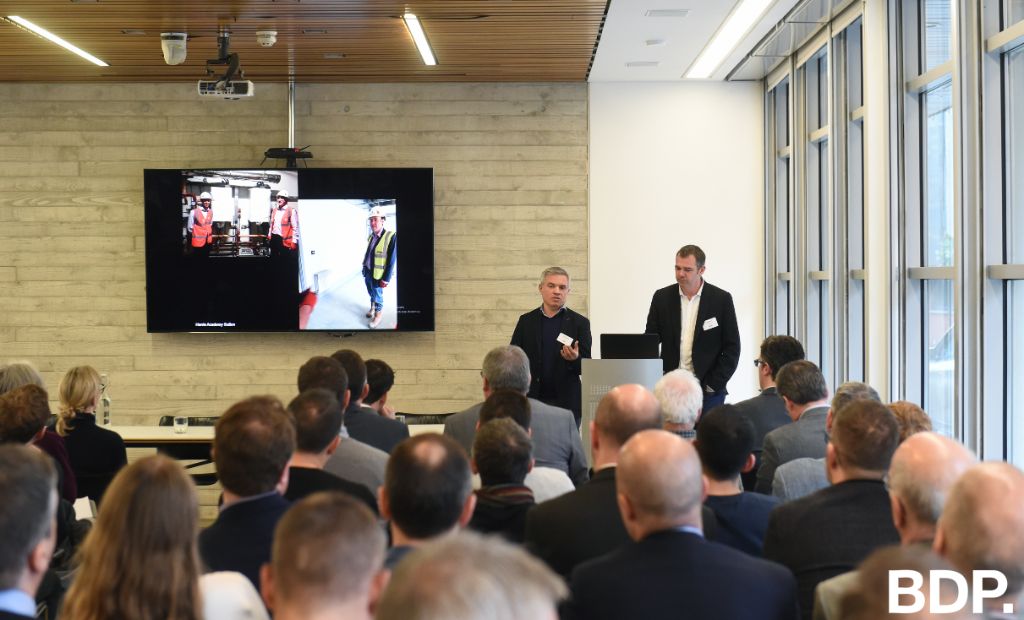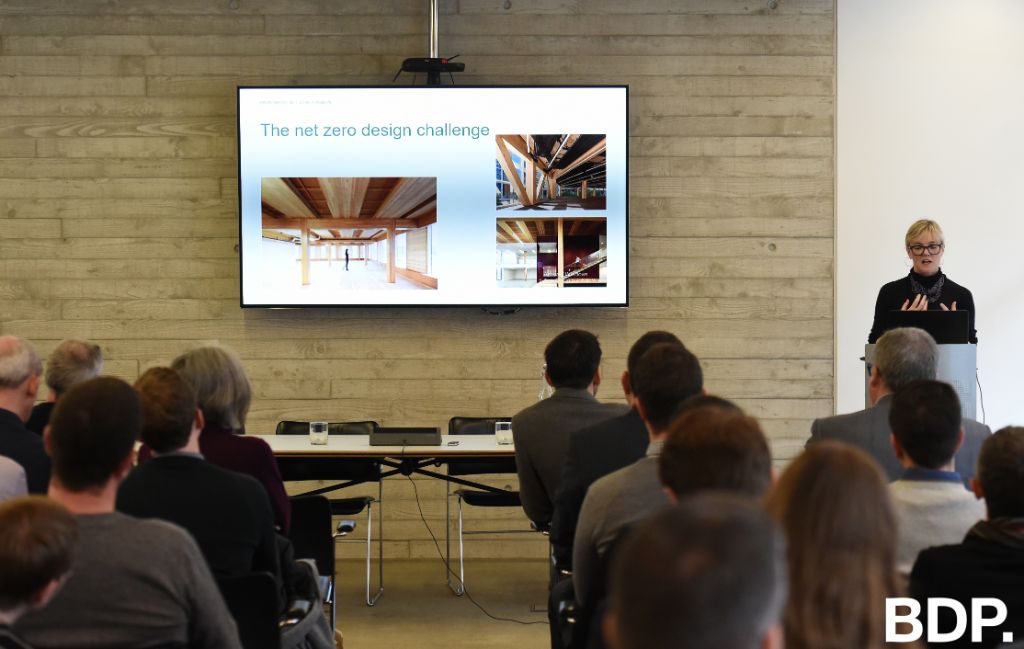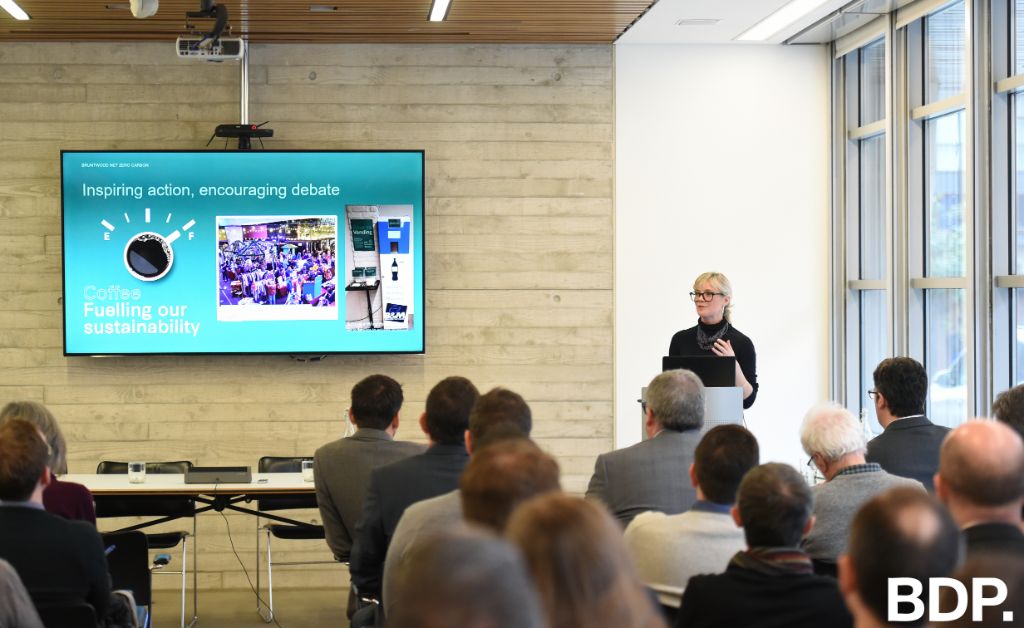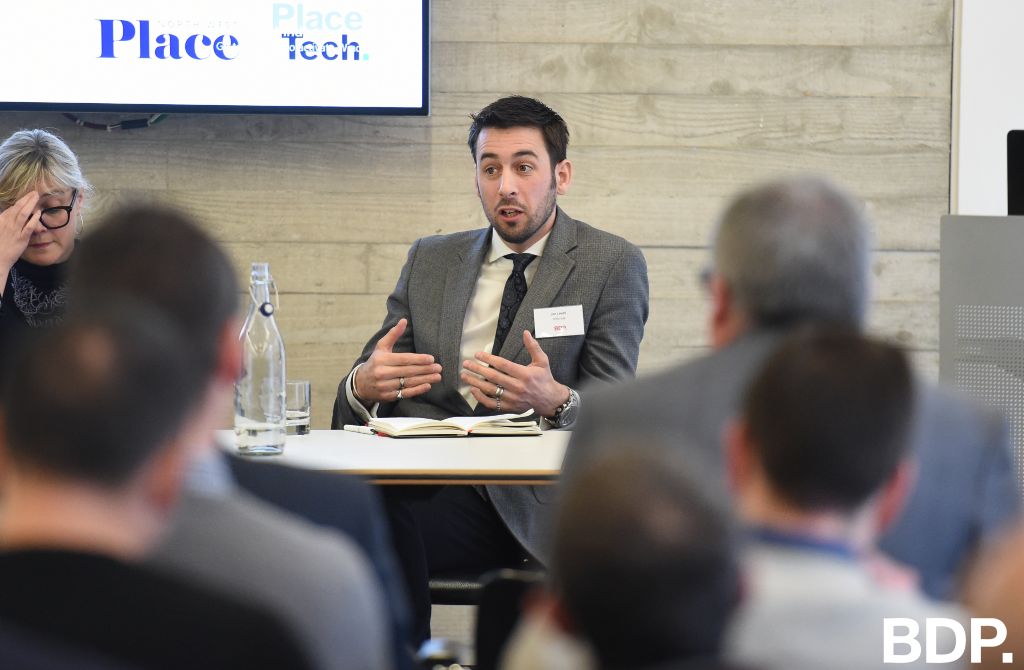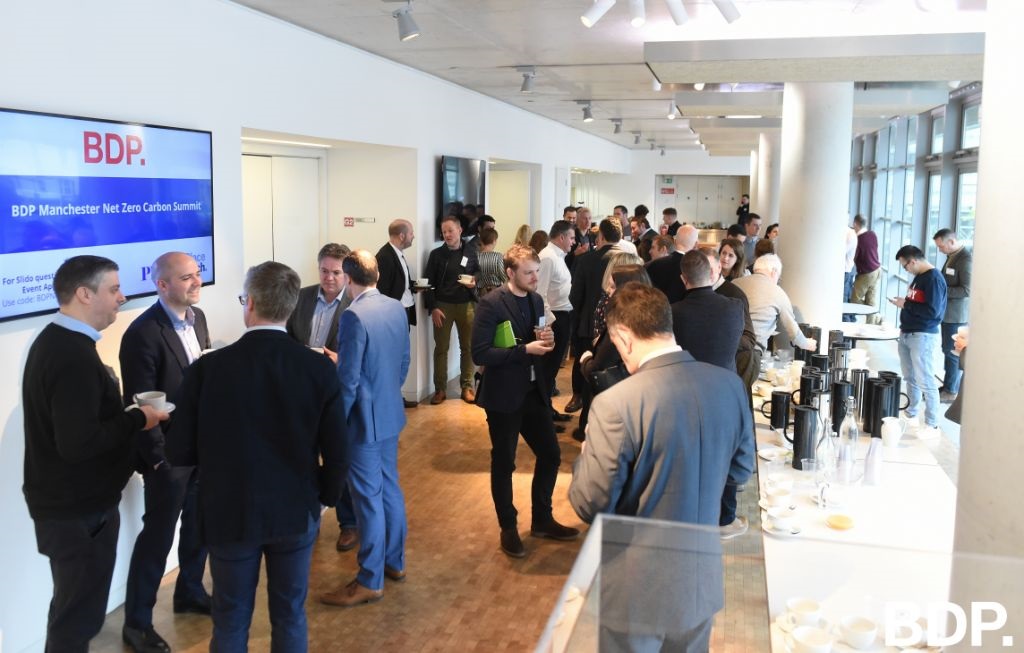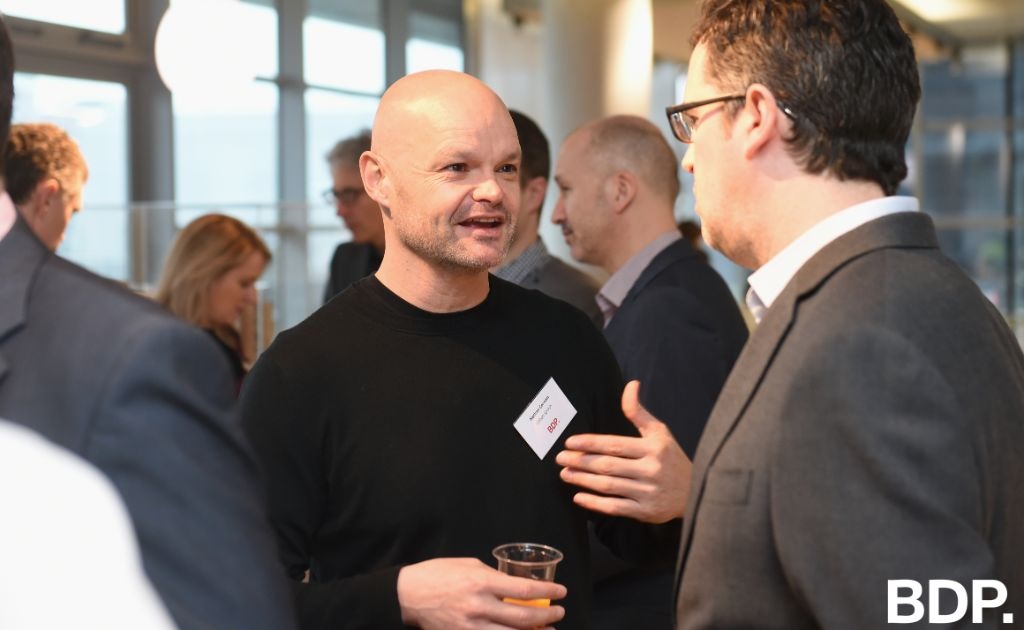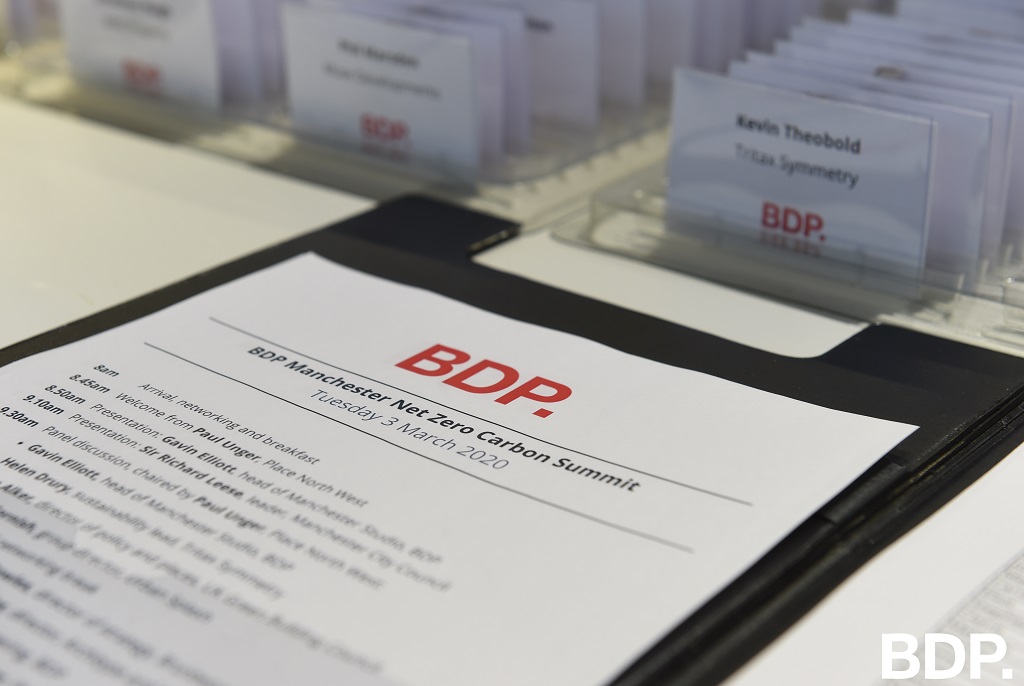City must come together to address net-zero challenge
If Manchester is to achieve its aim of becoming net zero carbon by 2038 it must find a way of cutting emissions by 50% over the next five years, according to Gavin Elliott, head of BDP’s Manchester studio.
The city currently produces 2m tonnes of carbon a year. At this rate Manchester will exhaust its carbon budget of 15m tonnes by 2026.
Leaders of Manchester’s development community met at BDP’s Ducie Street office to discuss what they can do to help achieve the city’s ambitious net zero carbon target.
Council leader Sir Richard Leese said the city needed a “kick up the arse” if it was going to hit the goal it has set itself.
The speakers at the event were:
- Gavin Elliott, head of BDP’s Manchester studio
- Sir Richard Leese, leader of Manchester City Council
- Helen Drury, sustainability lead for Tritax Symmetry
- Nathan Cornish, group director at Urban Splash
- John Alker, director of policy and places for the UK Green Building Council
- Jessica Bowles, director of strategy at Bruntwood
- Ben Humphries, director or Architype
- James Hepburn, principal – building services engineering at BDP
- Jon Lovell, founding director of Hillbreak
Early advantage
Gavin Elliott urged developers to act to reduce carbon now, not just for the benefit of the environment but for their own good.
“There is an early movement advantage. If you get on the front foot you will benefit as a business. If you come out of the blocks fast you will be the people who benefit.”
He also explained the important role cities can play in the fight against climate change.
“Most of the world’s population resides in cities and most of the economic activity and carbon emissions come from cities. Cities are the key agents to effecting the changes required and Manchester is in the vanguard of taking action.”
Elliott was at pains to express that the key to achieving net zero carbon was not to look at the 2038 deadline but rather to limit how much CO2 would be emitted along the way.
He said that Manchester had a carbon budget of 15m tonnes and that carbon emissions would need to be cut 15% year on year in order to meet the target.
More to be done
Sir Richard Leese called for consensus on the issue of climate change from government, criticising party leaders for “non-evidence-based bidding”, where each set different dates to achieve net zero. “The message to politicians is, stop playing games with climate change, we all need to be singing from the same hymn sheet.”
He added that, despite the progress that the city had made since the formation of the Manchester Climate Change Partnership in 2013, there was still a great deal of work to be done.
“As a city we have done well compared to others in the UK. We should give ourselves a pat on the back for what we have done and a kick up the arse because we need to do a lot, lot more.”
Leese said that the redevelopment of Manchester’s Central Retail Park, where 1m sq ft of offices are proposed, would have to be zero carbon and vehicle free. “We own 100% of that site and, if you want to work with us, that will be the requirement. I think people in Manchester will be up for that challenge.”
Scaling up
The property industry must use existing technologies “at scale” to reduce carbon rather than wait for a unicorn technology to come along, according to Gavin Elliott who, along with panellists Tritax Symmetry’s Helen Drury, Urban Splash’s Nathan Cornish and UKGBC’s John Alker, wrestled with the complexities of climate change within the industry.
Drury said it was important that developers took a long-term view on their projects and to think about building for the future.
“We made a commitment to build new buildings which are carbon zero. Steel and concrete make up 90% of carbon impact. We are looking at recycling materials, and how we can build our buildings today so they will still be here in 2050.”
She added that there was reticence within the industry to adopt certain practices, “It’s big and complicated and people don’t want to make a mistake and stick their head above the parapet but we’re going to have to do it.”
Elliott added that the environmental impact of a project can be reduced by reusing existing buildings, Drury agreed although she said it was often difficult to get permission from tenants to carry out retrofitting work as landlords were limited to intervene where long lease were in place.
Cornish lambasted the “hypocrisy” of politicians funding third world oil refineries, through the UK Export Finance fund, and said that they should be called out.
He added that he was “embarrassed” that Urban Splash didn’t have a sustainability plan but that one was now being finalised and admitted that the firm’s margins had taken a hit due to the focus it was now placing on sustainability.
“The green thing is becoming much more important to us now. We have never been driven solely by profit. We have been trying to develop sustainability for a number of years.”
Cornish also announced the formation of a Manchester Property Chapter of the Manchester Climate Change Partnership to lead on the issue of sustainability.
“We got together some like-minded developers to agree on a number of pledges and targets in terms of Manchester’s sustainability. Manchester should be leading this debate, not following.”
Alker said differing approaches and legislation on the issue of climate change around the country were a problem for developers and that those willing to adopt certain green policies at an early stage should not be punished financially.
“I have sympathy with developers working nationally with a patchwork of different standards. It’s complicated, it’s fast moving but we are starting to see a greater joining up.”
Power play
Bruntwood’s Jessica Bowles said that increasing on-site energy usage was at the heart of her firm’s efforts to reduce carbon, including taking Manchester Science Park off grid by using a Tesla battery to store solar power generated during the day.
She talked about Bruntwood’s aim to have 30% of the energy its buildings use generated on site and pointed out that Bruntwood was the first commercial property company in the UK to declare a zero-carbon deadline, 2030.
She said: “Bruntwood is a long-term investor rooted in the cities it occupies. That drives a different relationship with cities and sustainability. The climate emergency is our emergency.”
Bowles also mentioned that Bruntwood was in the process of developing a zero-carbon building in an undisclosed location in Manchester as part of the net zero design challenge.
“We want to create a net zero commercial building that washes its face which is pretty challenging. It is important having set that goal that we do something that we don’t know how to do today.
“We don’t know how to design a net zero carbon building taking into account both construction and operation and we are having to work pretty hard at that.”
Meeting requirements
BDP’s James Hepburn and Ben Humphries of Architype, who have collaborated on a number of low carbon projects, said that new carbon guidelines announced by RIBA were “incredibly onerous” but that people might be surprised at the cost of developing low carbon buildings.
The benchmarks set out by RIBA require non-domestic buildings to have embodied carbon of a maximum 500kg per square metre by 2050, the current requirement is 800kg.
The Passivhaus certified Enterprise Centre at the University of East Anglia has won 35 awards and was described by Hepburn and Humphries as “massively challenging but really good fun”. The building only just adhered to RIBA’s climate challenge guidelines.
The same is true of the Harris Academy, a secondary school in Sutton.
“The Harris Academy is the first Passivhaus secondary school in the UK. The sports hall is timber framed and the school runs off a 100kw boiler and uses tiny radiators, but the embodied carbon evaluation shows it only just meets RIBA standards.”
Despite the challenges associated with limiting carbon in buildings Humphries said that the Enterprise Centre surprised cost consultant Gardiner & Theobald when it came in at £2,800/sq m, equalling the median cost of the 10 most recent developments at the “concrete-heavy” University of East Anglia.
Risky business
Jon Lovell of Hillbreak advises institutional investors on the environment. He said that the development community needs to take into account long-term risks to business brought about by the effects of climate change and address the negative impact “hideously fragmented supply chains” have on achieving low-carbon objectives.
“When we think about risk we look through the lens of physical risk and assets being affected by acute changes in weather but also from more systemic longer term changes like sea level rise and rising temperatures.
“The other risk is transition risk. We have to think about how the world market will shift and if we have the systems that will cope with these changes.
“The more complicated area is downstream supply chain which in a real estate market is hideously fragmented. The risk of disconnect and lack of accountability is really high.”
Humphries agreed that a cooperative supply chain and a collective agreement on how a project should be brought forward are important for minimising risk.
“One of the interesting things on the Enterprise Centre was the fostered collaboration. We knew from delivering Passivhaus projects that it only works by implementing contractual mechanisms.
“If you use a conventional methodology like design and build you won’t get the results.”
Humphries gave the example of Dudley College, another collaboration between Architype and BDP, to demonstrate how contractual structure can facilitate the project. He said there was a single project insurance policy for the scheme rather than lots of smaller ones which promoted collective accountability.
Bowles agreed: “You have to have shared understanding, vision and agreement on what you’re going to deliver. Central Retail Park will require some give and take from the council as well as shared vision from the developer and the next part of the supply chain and figuring out a way to do that is critical.”
Lovell believes current tools such as BREEAM and offsetting are not effective in developing sustainable buildings and that, while tree planting and rewilding were good in principle, they worry him as a tool for offsetting carbon.
“One thing is land availability. If every company in the UK wanted to become net zero through tree planting you would need three UKs of land to accommodate that. Offsetting has to be the last thing you think of and the market is waking up quickly.”
Bowles ended the discussion by calling for Manchester to take a leadership role in the fight for sustainability.
“Manchester has a really strong development and property community and we have an opportunity to set the city apart. It’s about saying ‘what can we do that says Manchester is a progressive, radical place that is tackling these questions?’”
The presentation slides can be accessed below:
Ben Humphries, Architype and James Hepburn, BDP
Click any image to launch gallery
- Sir Richard Leese
- Sir Richard Leese
- John Alker, UK Green Building Council
- Helen Drury, Tritax Symmetry
- Gavin Elliott, BDP
- From left: Gavin Elliott, Helen Drury, Nathan Cornish, John Alker
- From left: Helen Drury, Nathan Cornish, John Alker, Paul Unger
- Credit: via Place North West
- Ben Humphries and James Hepburn
- Jessica Bowles, Bruntwood
- Jon Lovell, Hillbreak


